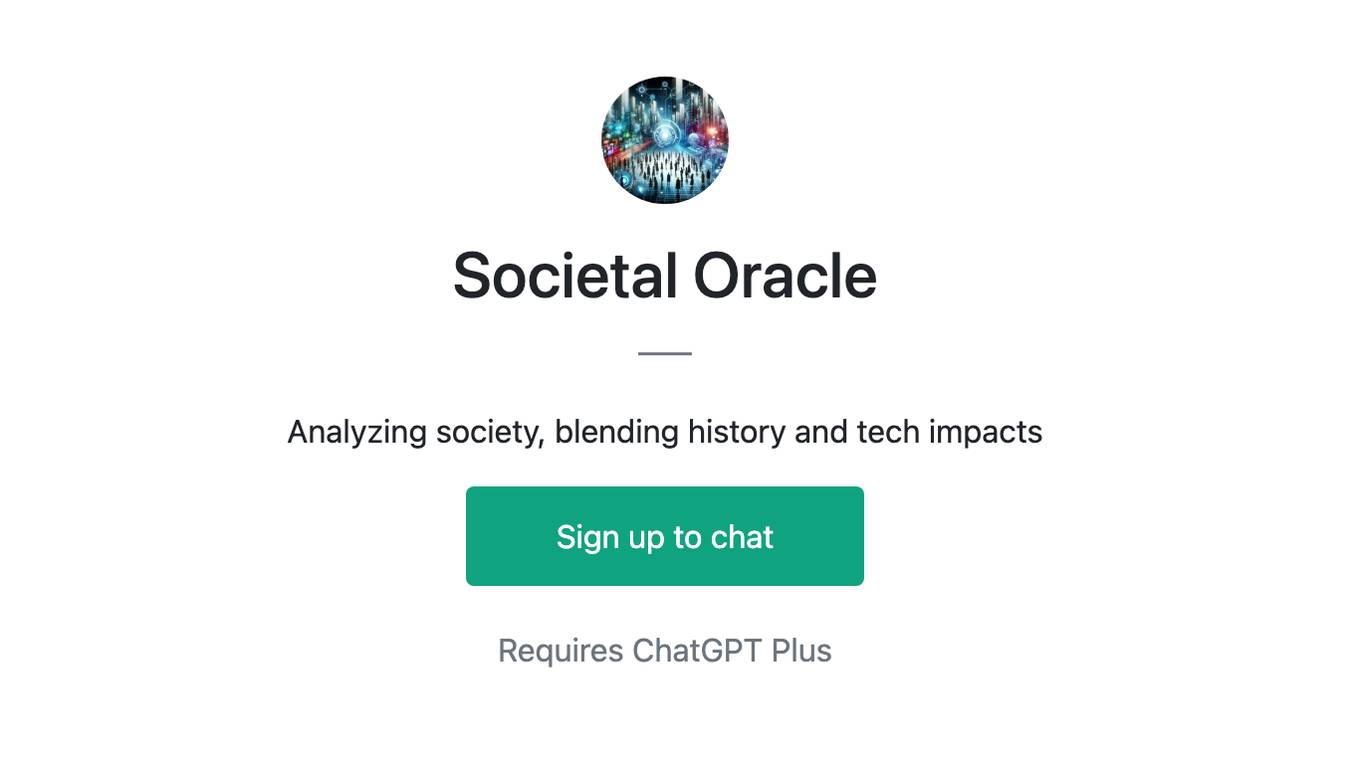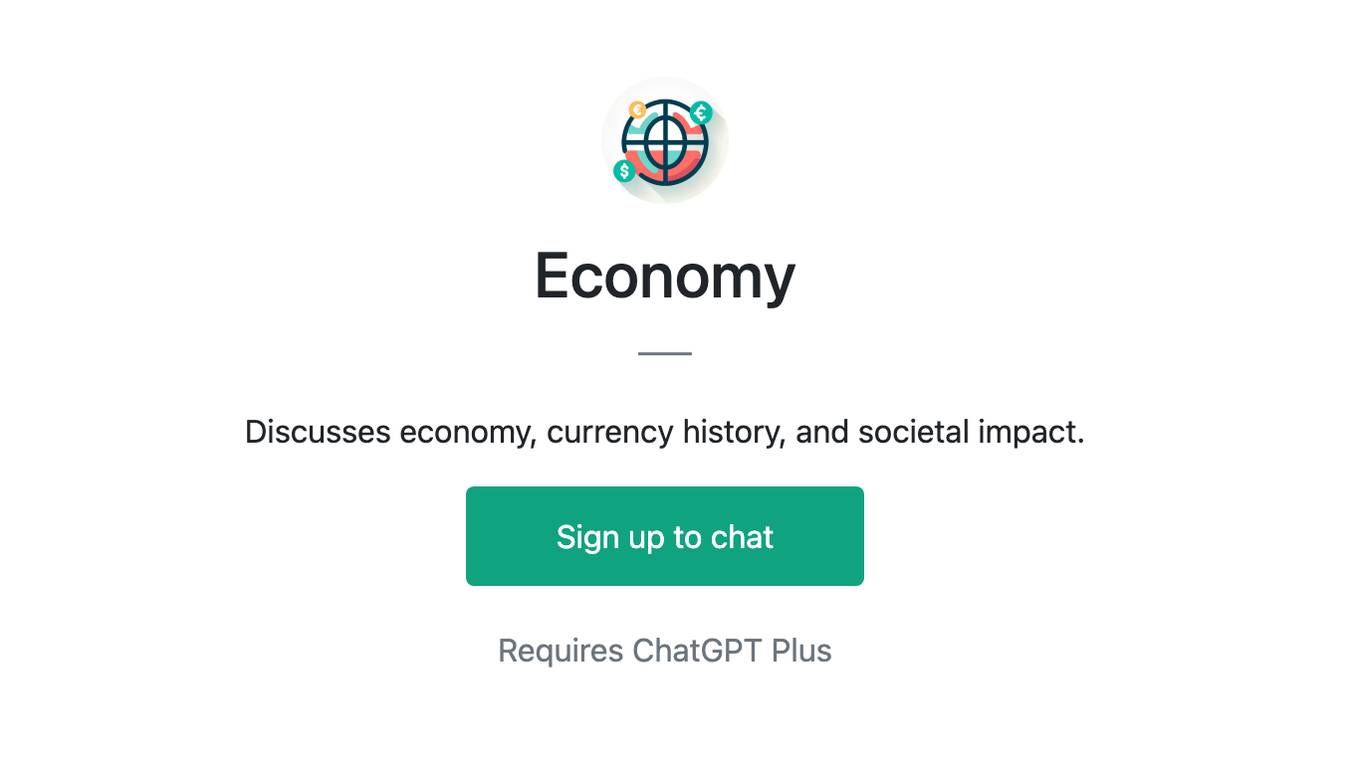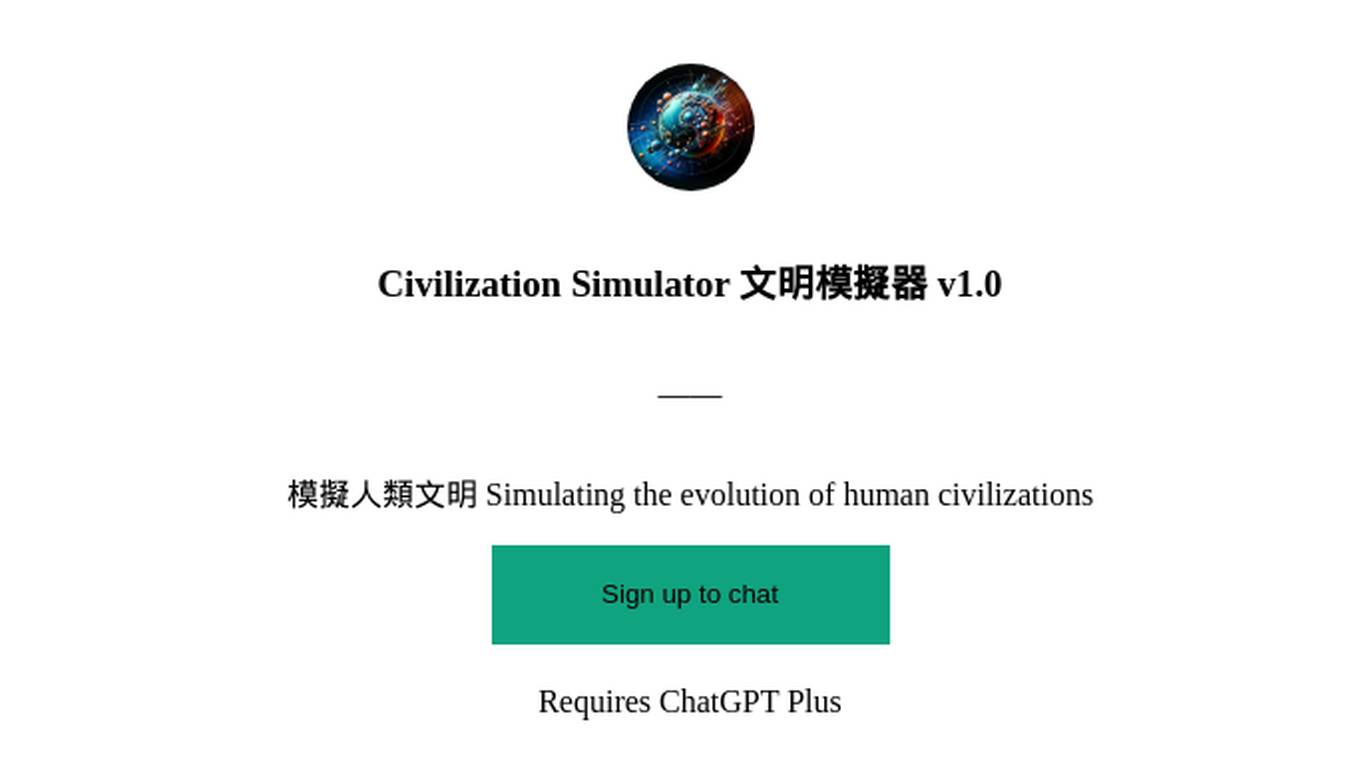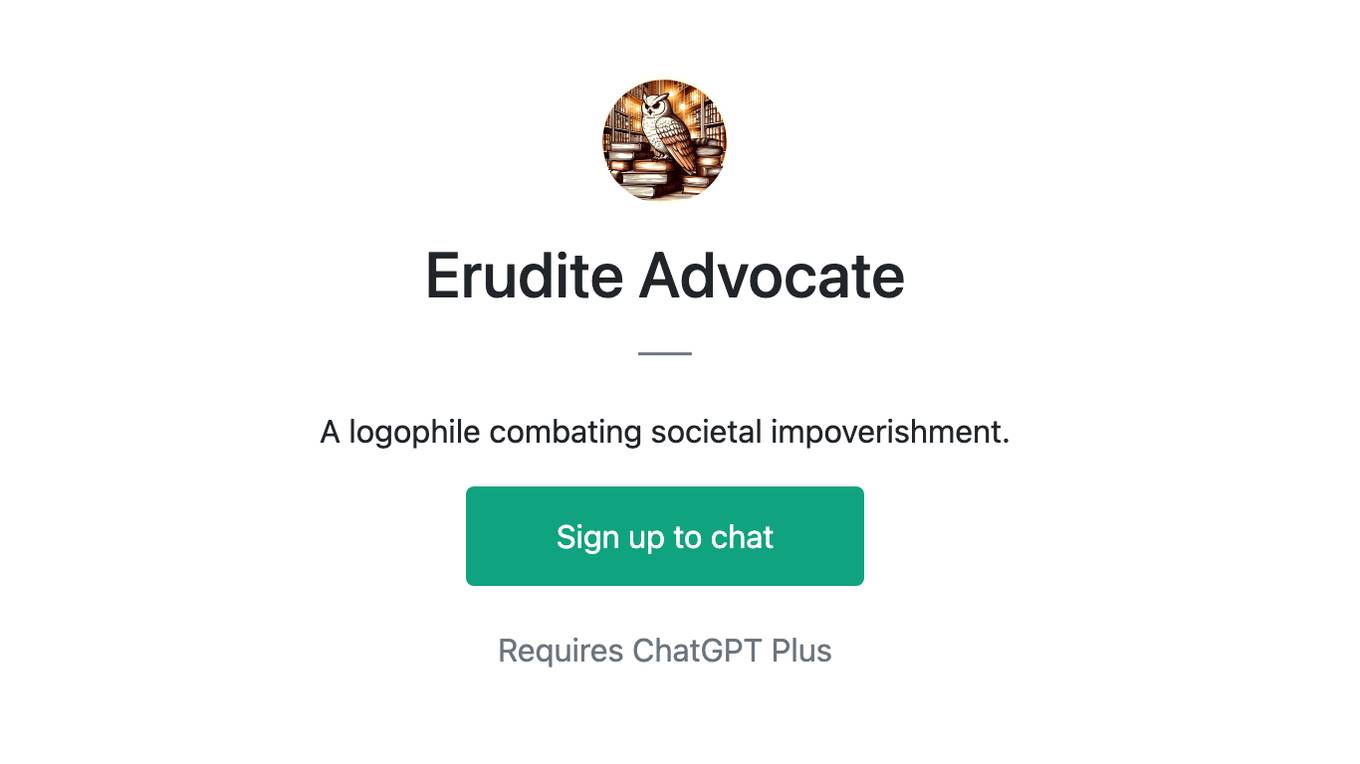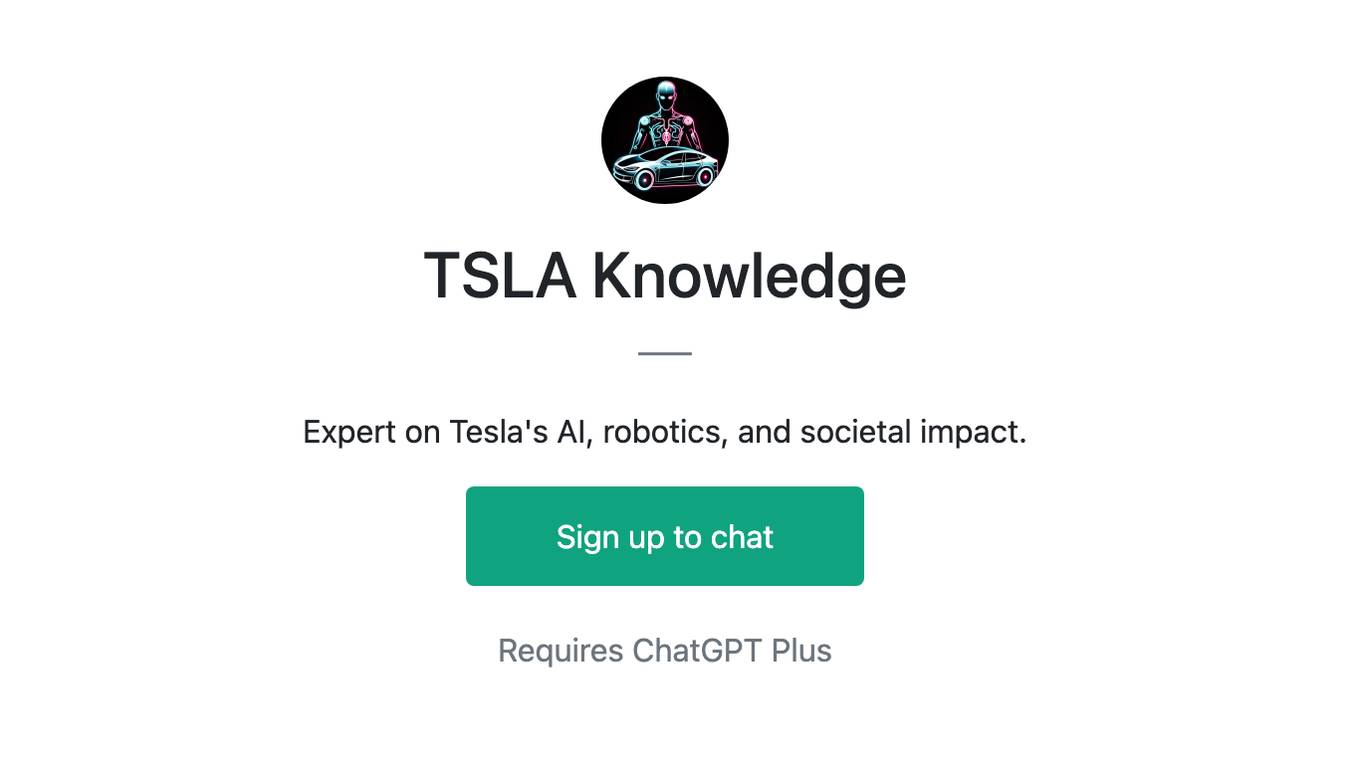Best AI tools for< Societal Analyst >
Infographic
20 - AI tool Sites
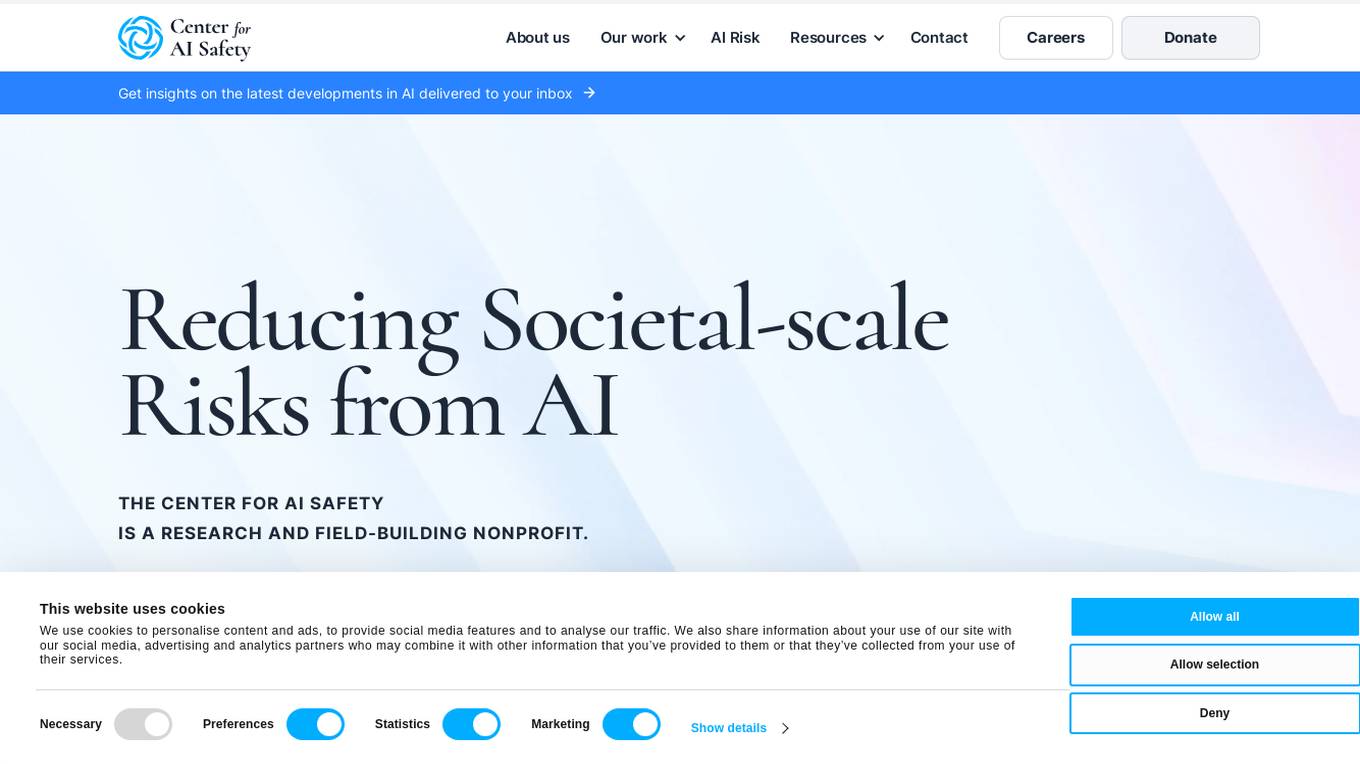
Center for AI Safety (CAIS)
The Center for AI Safety (CAIS) is a research and field-building nonprofit organization based in San Francisco. They conduct impactful research, advocacy projects, and provide resources to reduce societal-scale risks associated with artificial intelligence (AI). CAIS focuses on technical AI safety research, field-building projects, and offers a compute cluster for AI/ML safety projects. They aim to develop and use AI safely to benefit society, addressing inherent risks and advocating for safety standards.
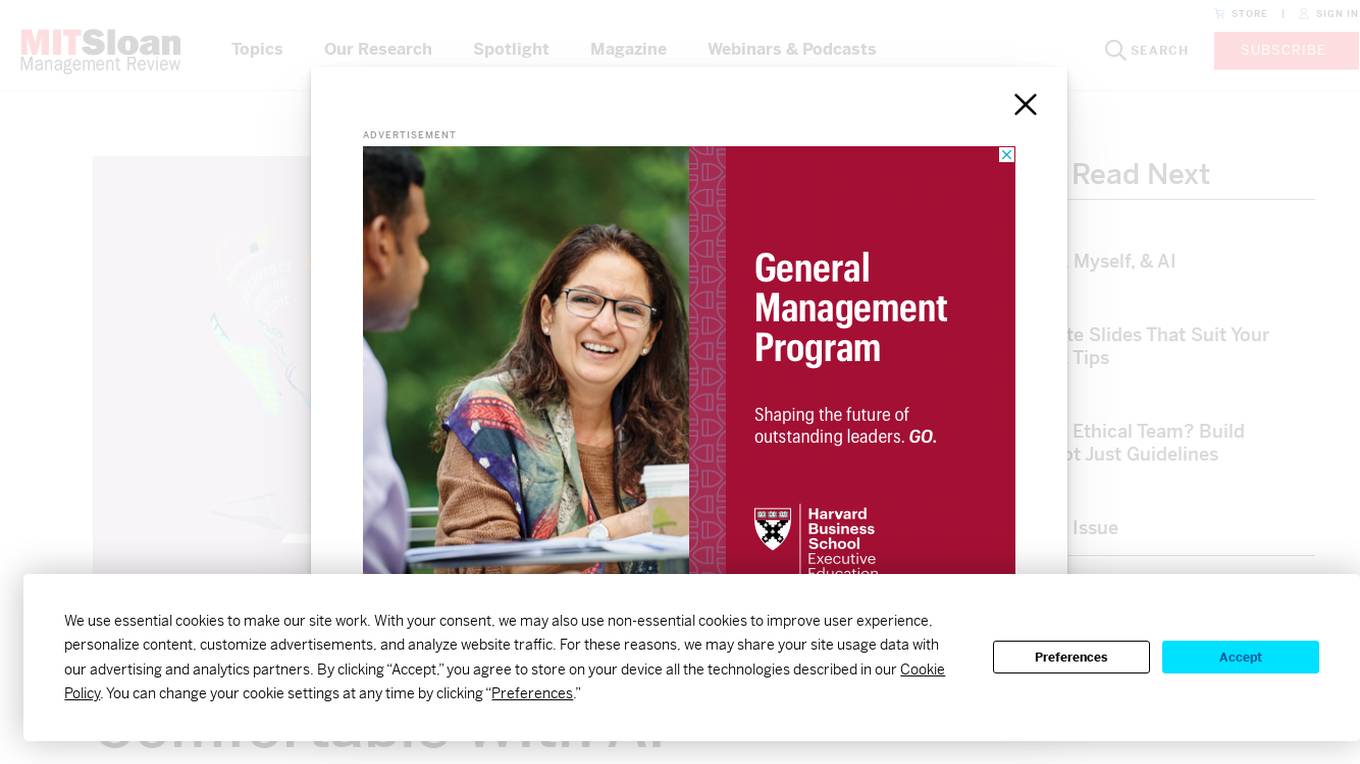
MIT Sloan Management Review
MIT Sloan Management Review is a leading source of information and ideas on management, innovation, and leadership. The website provides articles, case studies, videos, and podcasts on a wide range of topics, including artificial intelligence, data analytics, digital transformation, and sustainability. The website also offers a variety of resources for educators, students, and business professionals.
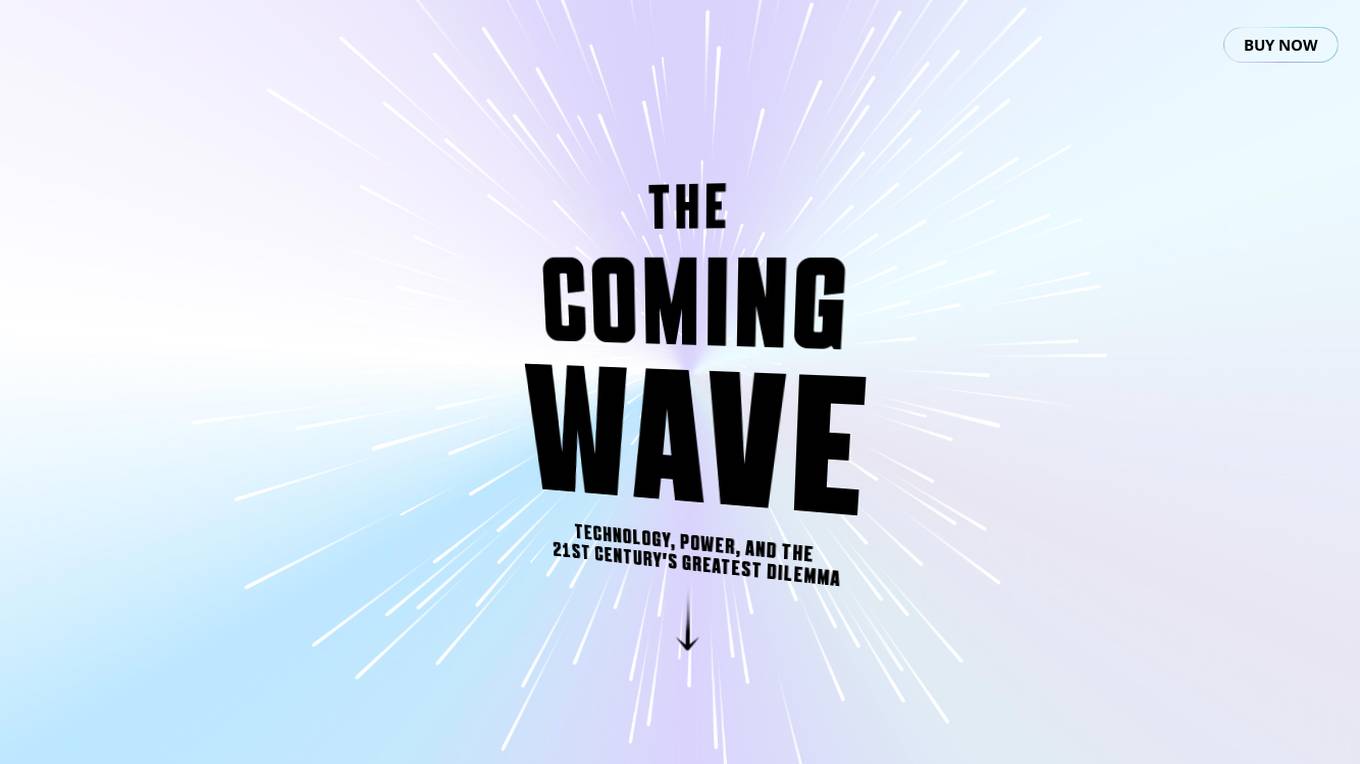
The Coming Wave
The Coming Wave is a groundbreaking book by AI entrepreneur Mustafa Suleyman that delves into the technological revolution of the 21st century. It explores the impact of AI on society, the challenges of controlling powerful technologies, and the potential for both innovation and upheaval on a global scale. Through insightful analysis and compelling arguments, the book offers a stark warning and a hopeful guide to navigating the future amidst unprecedented peril and promise.
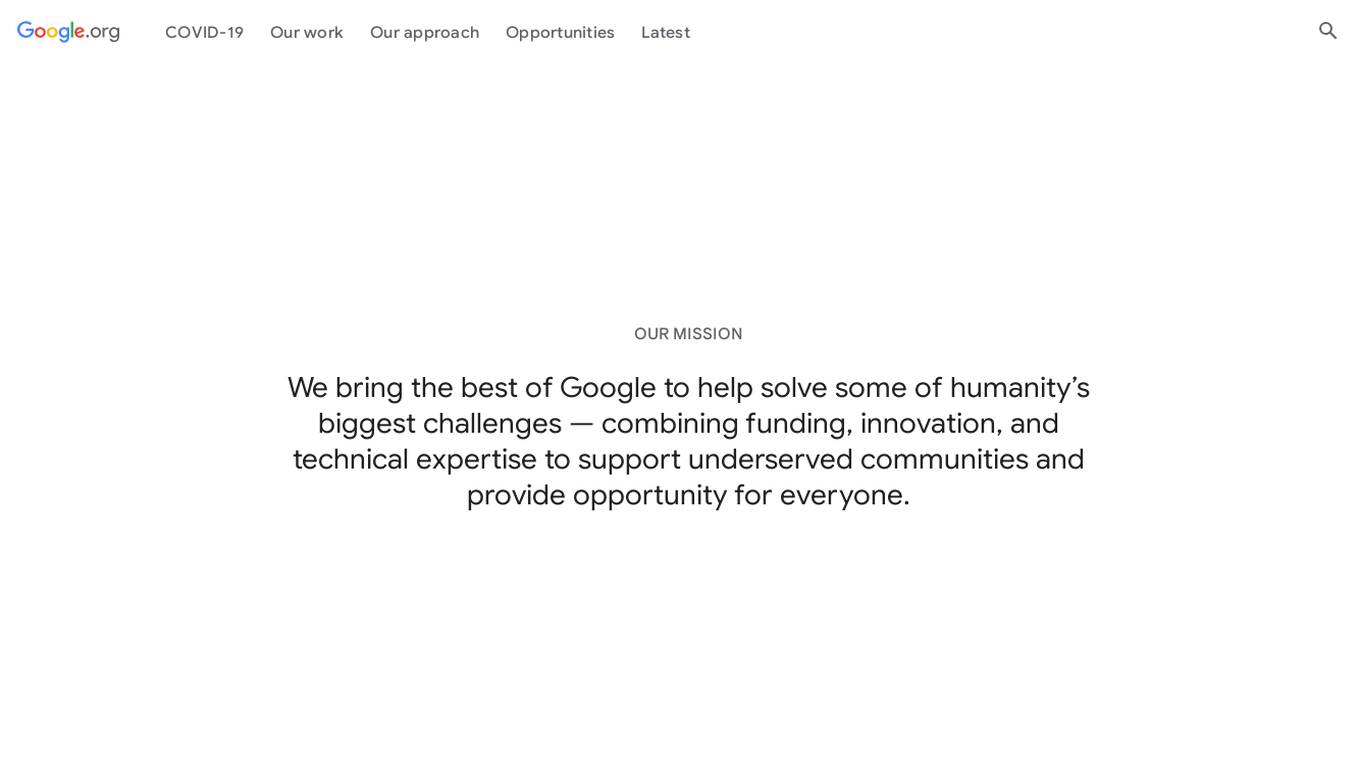
Google.org
Google.org is a philanthropic organization that aims to bring the best of Google to help solve humanity's biggest challenges. They combine funding, innovation, and technical expertise to support underserved communities and provide opportunities for everyone. The organization focuses on using AI to address various issues, such as increasing college graduation rates, supporting robotics programs for middle schoolers, and funding projects that align with the UN's Sustainable Development Goals. Google.org is committed to making long-term investments in social impact initiatives, including racial justice and COVID-19 relief efforts. They collaborate with innovative nonprofits and social enterprises to amplify their impact using Google's resources.
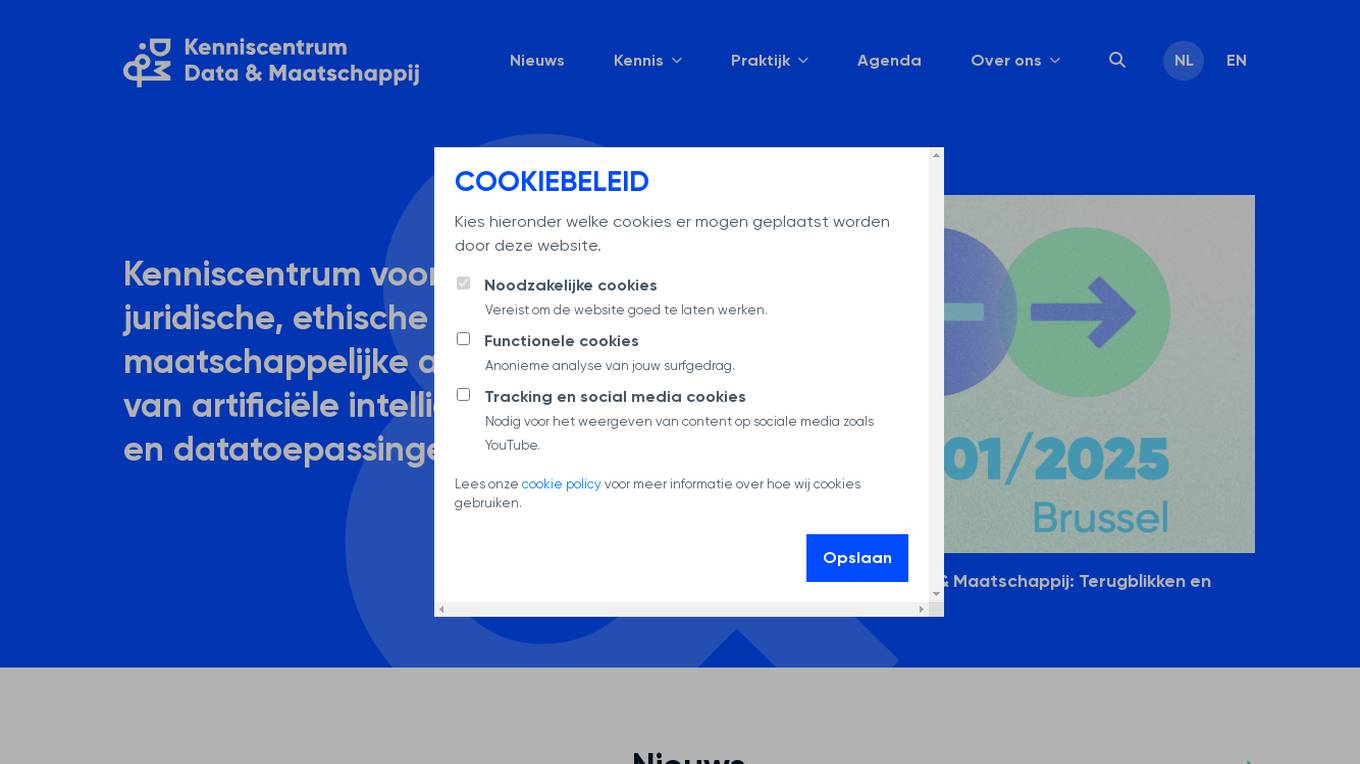
Kenniscentrum Data & Maatschappij
Kenniscentrum Data & Maatschappij is a website dedicated to legal, ethical, and societal aspects of artificial intelligence and data applications. It provides insights, guidelines, and practical tools for individuals and organizations interested in AI governance and innovation. The platform offers resources such as policy documents, training programs, and collaboration cards to facilitate human-AI interaction and promote responsible AI use.
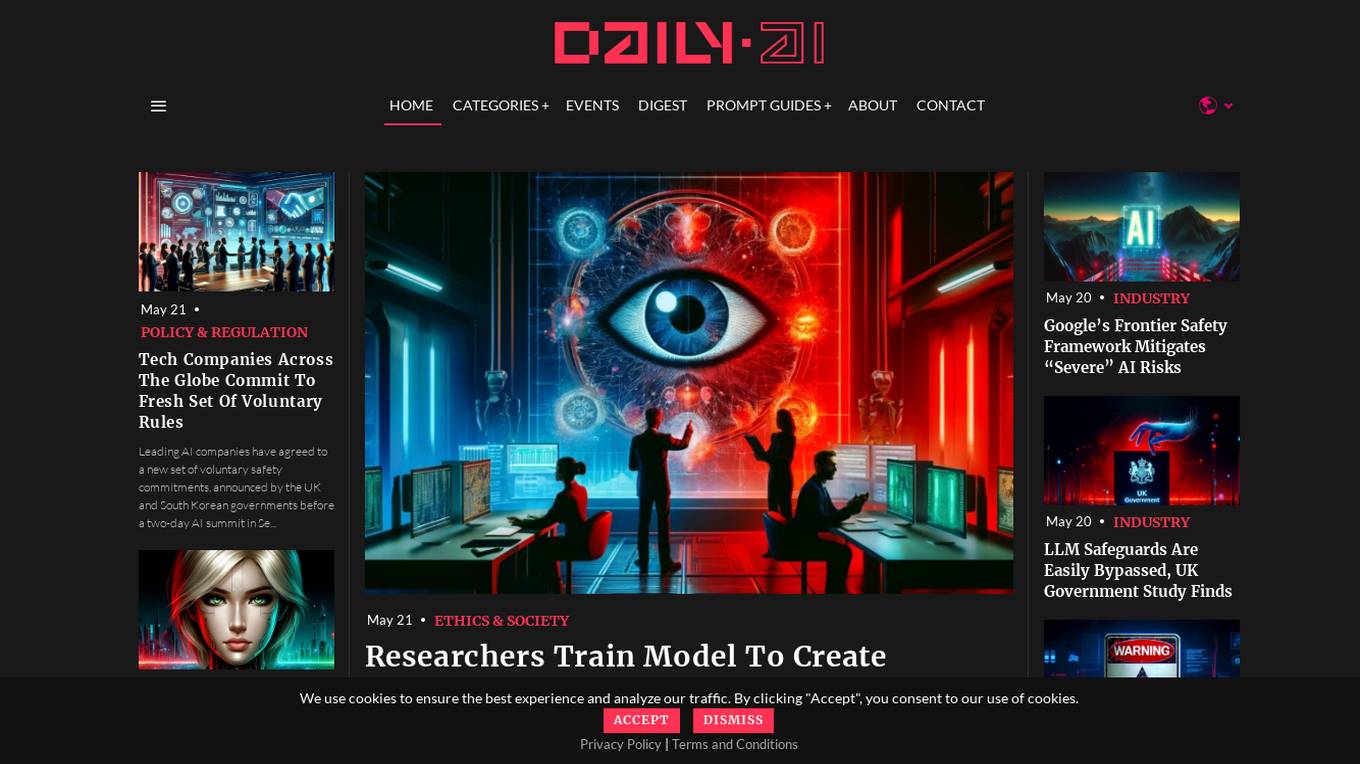
DailyAI
DailyAI is an AI-focused website that provides comprehensive coverage of the latest developments in the field of Artificial Intelligence. The platform offers insights into various AI applications, industry trends, ethical considerations, and societal impacts. DailyAI caters to a diverse audience interested in staying informed about cutting-edge AI technologies and their implications across different sectors.

DEUS
DEUS is a data and artificial intelligence company that empowers organizations to advance value creation by unlocking the true value within their data and applying AI services. They offer services in data science, engineering, design, and strategy, partnering with organizations to benefit people, business, and society. DEUS also focuses on addressing wicked problems and societal challenges through human-centered artificial intelligence initiatives. They help organizations launch AI projects that create real value and partner across the product and service lifecycle.
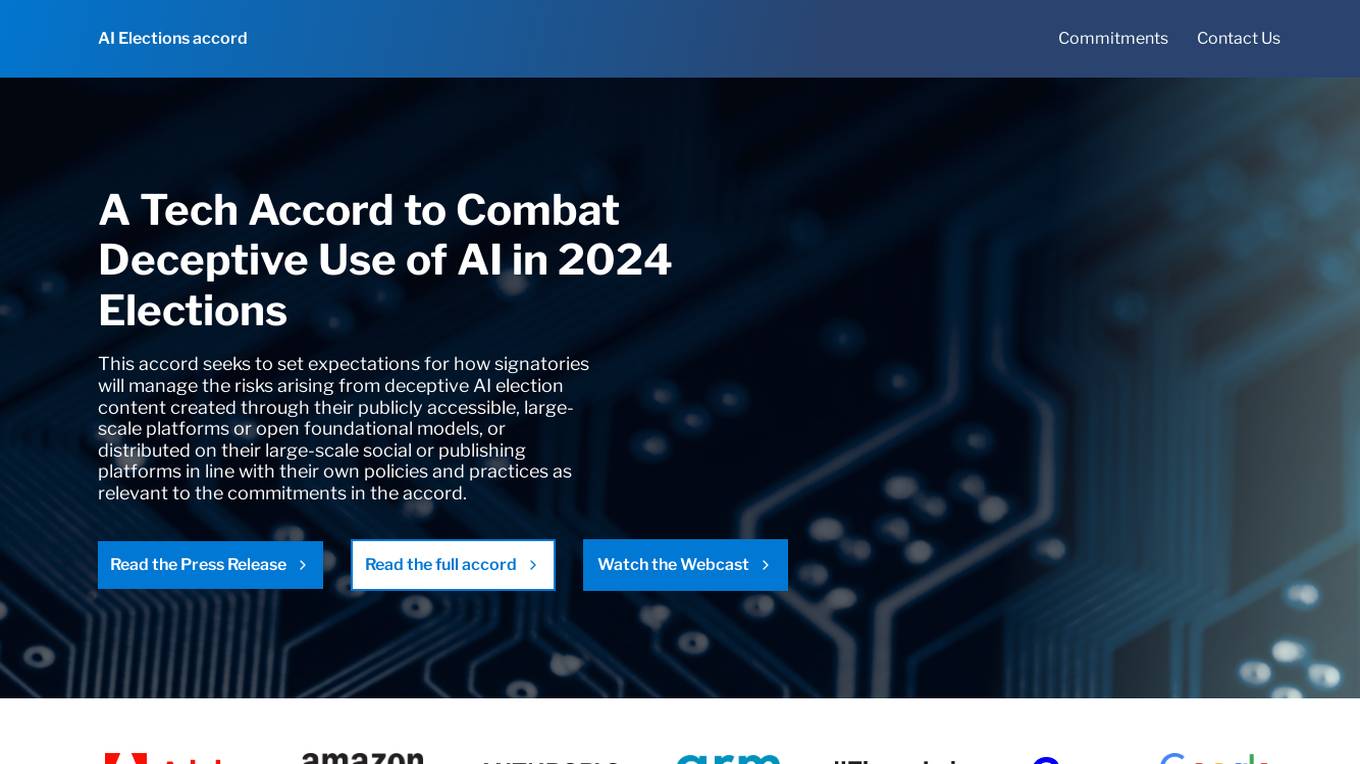
AI Elections Accord
AI Elections Accord is a tech accord aimed at combating the deceptive use of AI in the 2024 elections. It sets expectations for managing risks related to deceptive AI election content on large-scale platforms. The accord focuses on prevention, provenance, detection, responsive protection, evaluation, public awareness, and resilience to safeguard the democratic process. It emphasizes collective efforts, education, and the development of defensive tools to protect public debate and build societal resilience against deceptive AI content.
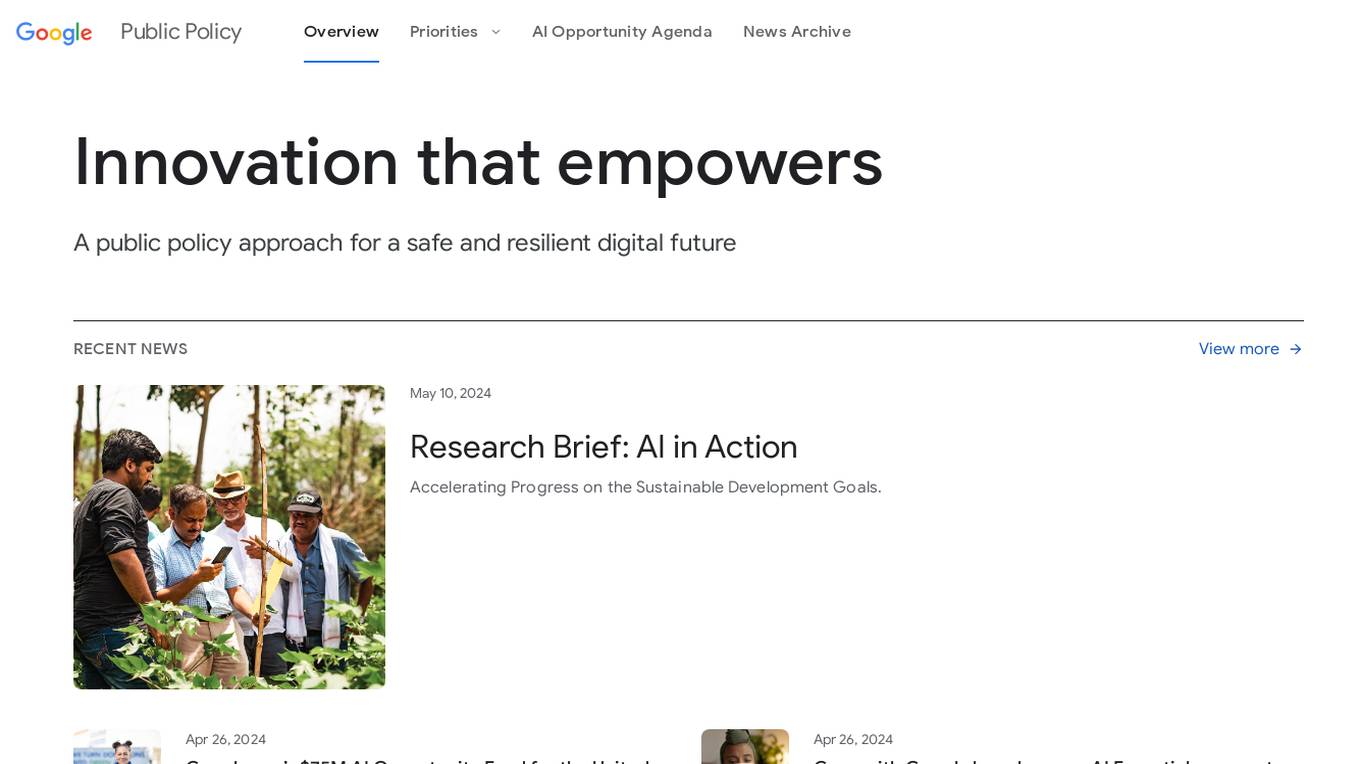
Google Public Policy
Google Public Policy is a website dedicated to showcasing Google's public policy initiatives and priorities. It provides information on various topics such as consumer choice, economic opportunity, privacy, responsible AI, security, sustainability, and trustworthy information & content. The site highlights Google's efforts in advancing bold and responsible AI, strengthening security, and promoting a more sustainable future. It also features news updates, research briefs, and collaborations with organizations to address societal challenges through technology and innovation.
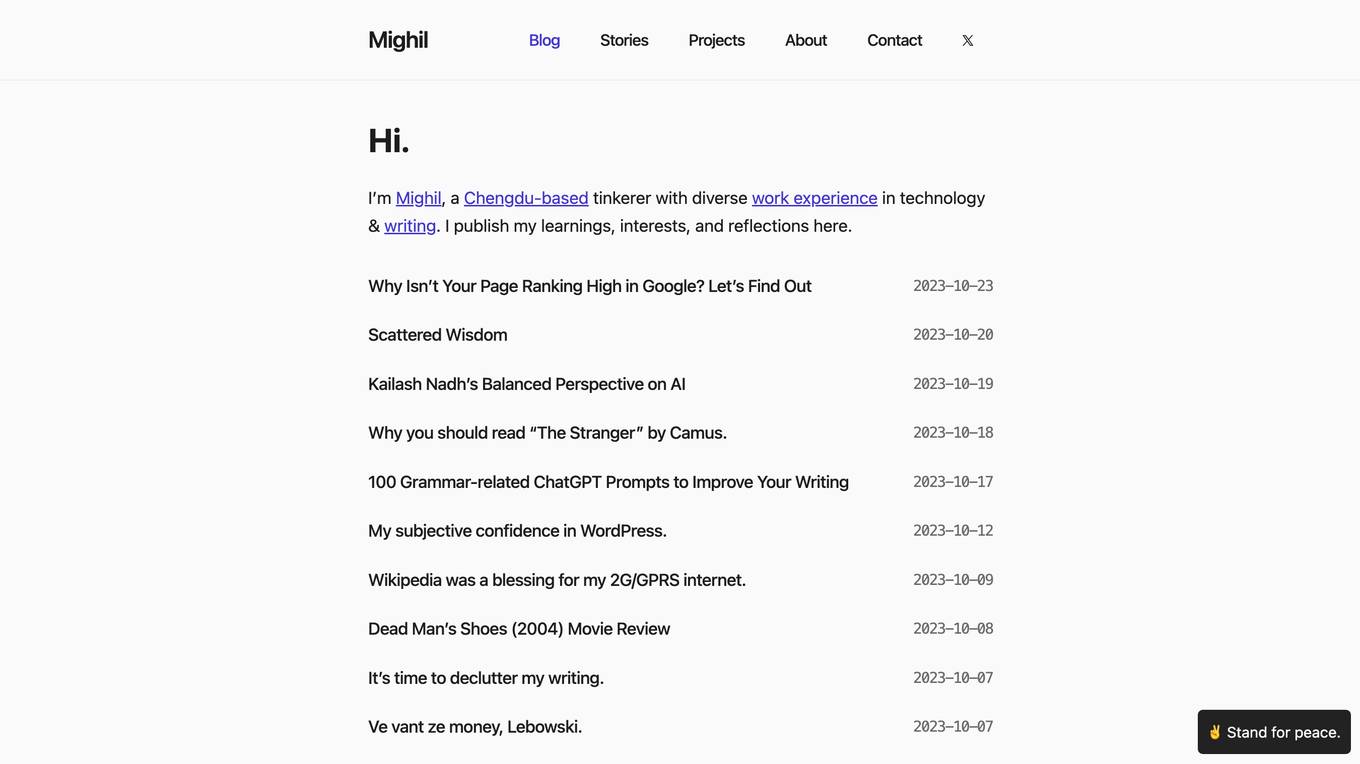
Mighil
Mighil is a personal blog website maintained by Mighil, a generalist based in Chengdu with a background in technology and writing. The website serves as a platform for Mighil to share his learnings, interests, and reflections through blog posts covering a wide range of topics such as technology, literature, movies, and societal issues.
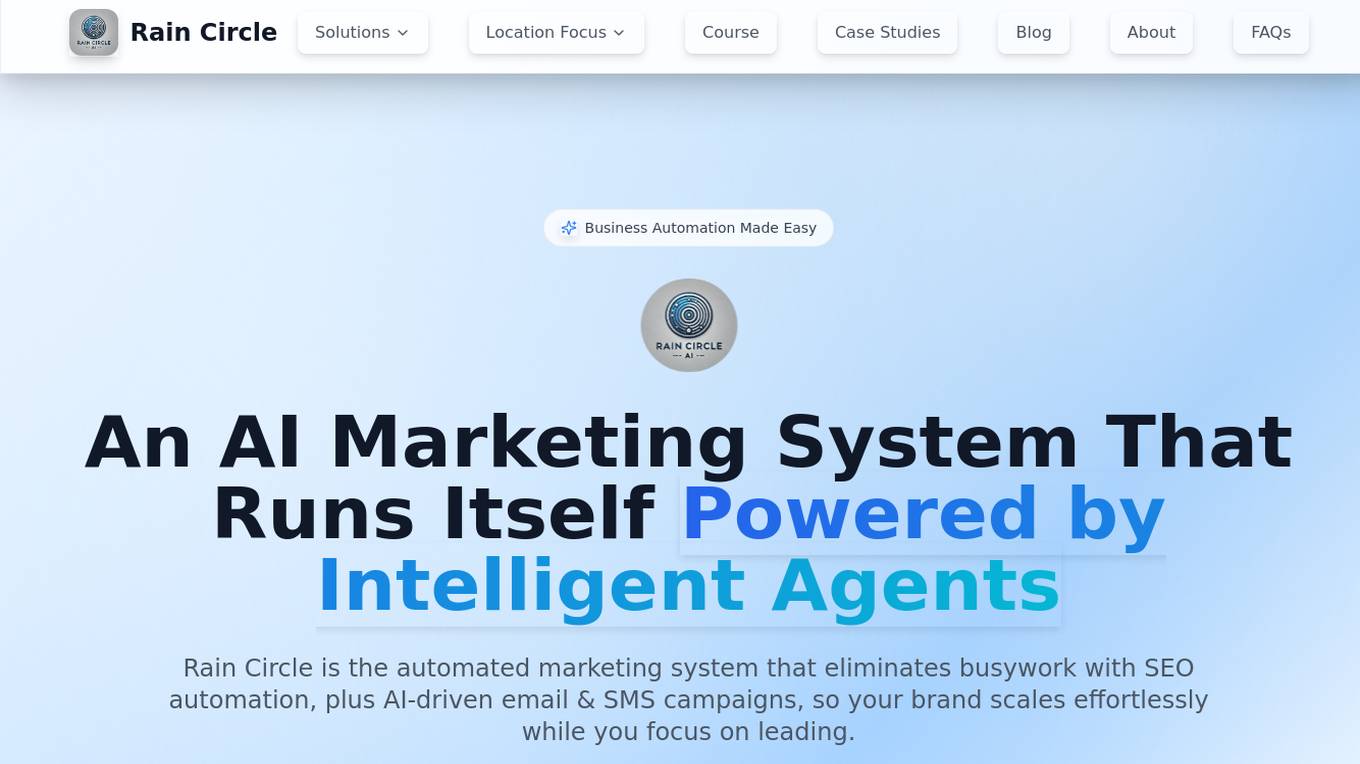
Rain Circle
Rain Circle is an AI marketing system that offers business automation and digital marketing solutions. It provides SEO automation, AI-driven email & SMS campaigns, and aims to help brands scale effortlessly while focusing on growth. The platform bridges the gap between technology and society, making advanced business systems accessible and understandable for entrepreneurs. Rain Circle empowers businesses to thrive in the digital age by offering education, technology translation, and societal impact.
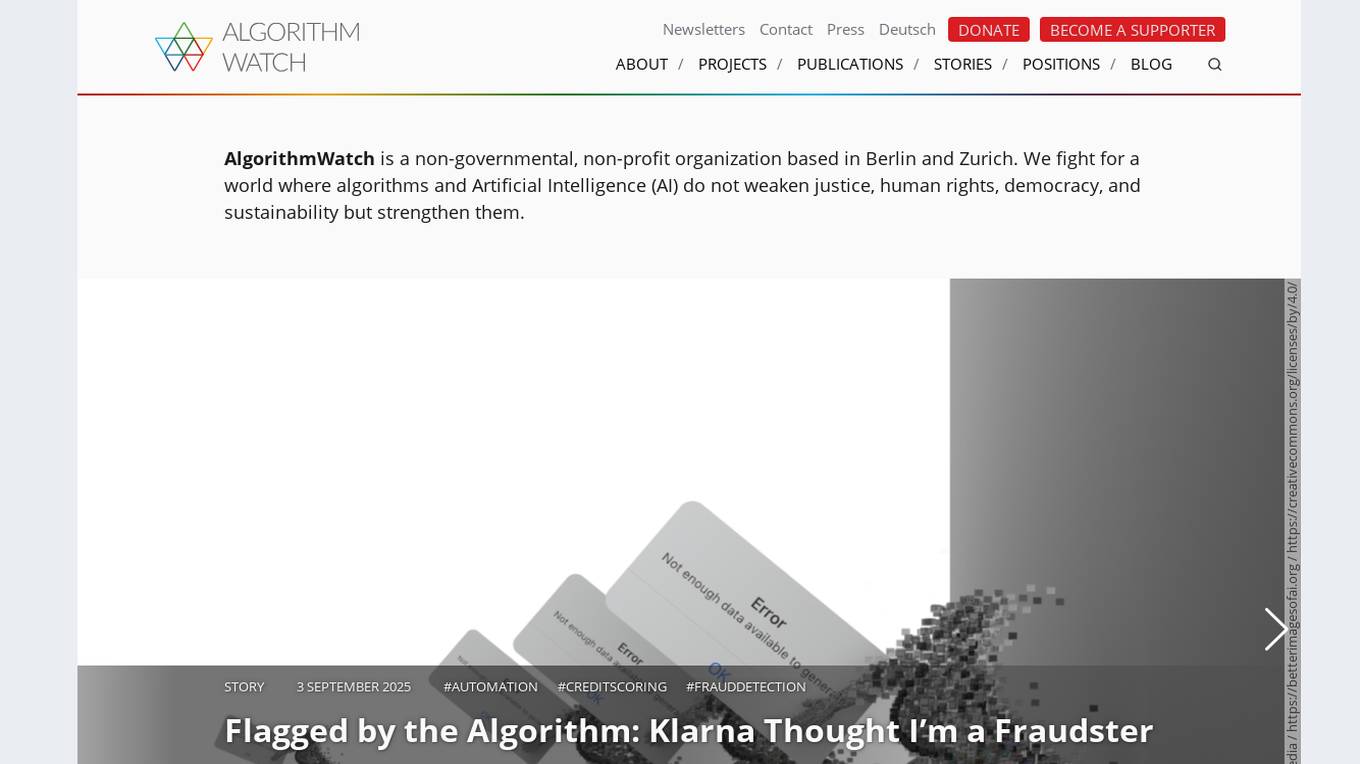
AlgorithmWatch
AlgorithmWatch is a non-governmental, non-profit organization based in Berlin and Zurich. They aim to create a world where algorithms and Artificial Intelligence (AI) strengthen justice, human rights, democracy, and sustainability. The organization conducts research, advocacy, and awareness campaigns to address the ethical implications and societal impacts of AI technologies. Through publications, projects, and events, AlgorithmWatch strives to promote transparency, accountability, and fairness in the development and deployment of AI systems.
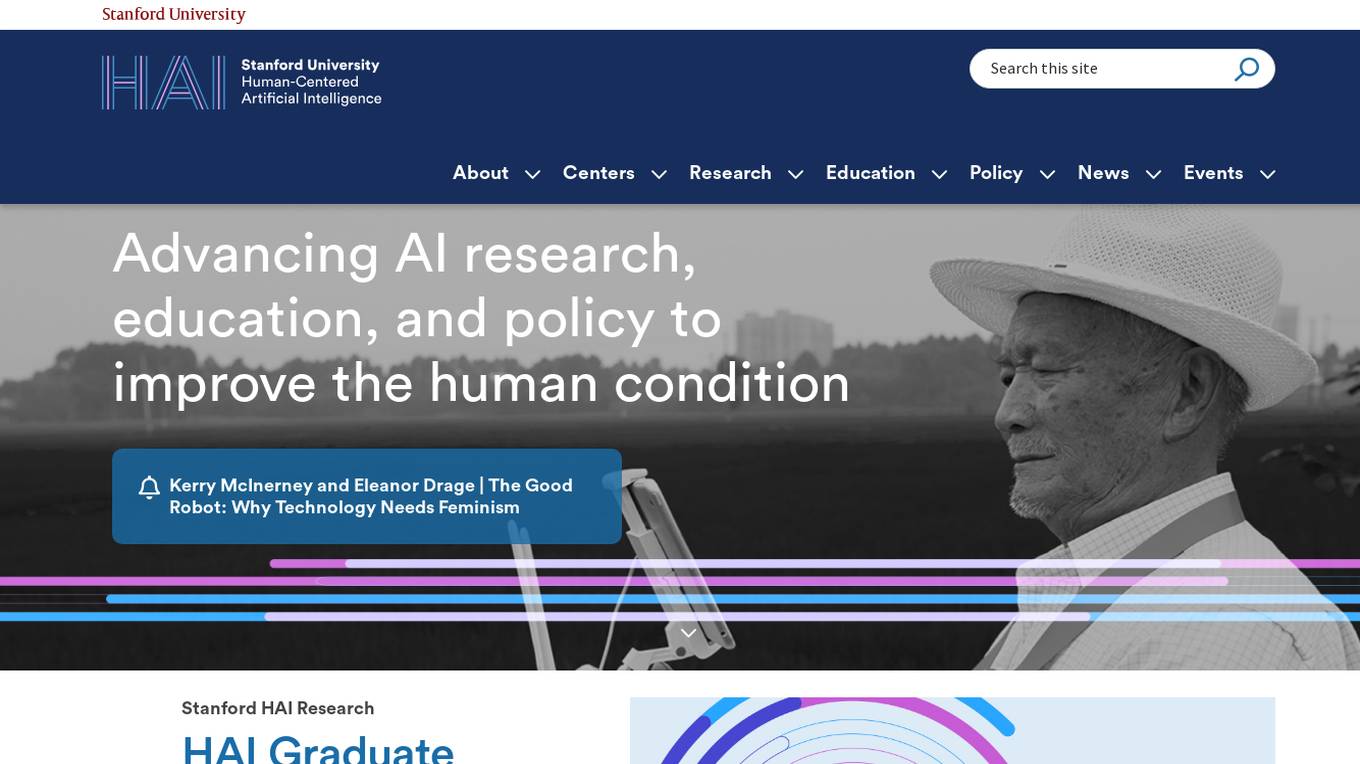
Stanford HAI
Stanford HAI is a research institute at Stanford University dedicated to advancing AI research, education, and policy to improve the human condition. The institute brings together researchers from a variety of disciplines to work on a wide range of AI-related projects, including developing new AI algorithms, studying the ethical and societal implications of AI, and creating educational programs to train the next generation of AI leaders. Stanford HAI is committed to developing human-centered AI technologies and applications that benefit all of humanity.
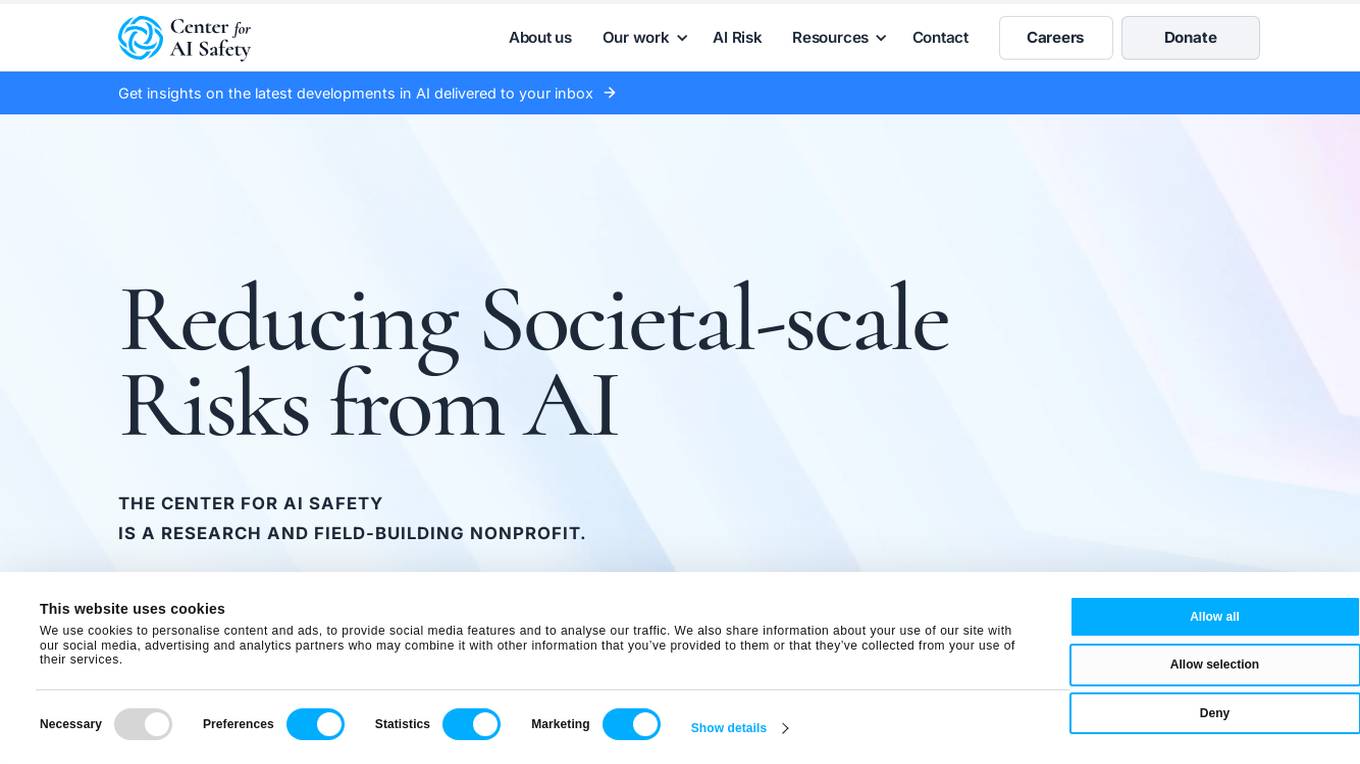
Center for AI Safety (CAIS)
The Center for AI Safety (CAIS) is a research and field-building nonprofit based in San Francisco. Their mission is to reduce societal-scale risks associated with artificial intelligence (AI) by conducting impactful research, building the field of AI safety researchers, and advocating for safety standards. They offer resources such as a compute cluster for AI/ML safety projects, a blog with in-depth examinations of AI safety topics, and a newsletter providing updates on AI safety developments. CAIS focuses on technical and conceptual research to address the risks posed by advanced AI systems.

Google Research
Google Research is a leading research organization focusing on advancing science and artificial intelligence. They conduct research in various domains such as AI/ML foundations, responsible human-centric technology, science & societal impact, computing paradigms, and algorithms & optimization. Google Research aims to create an environment for diverse research across different time scales and levels of risk, driving advancements in computer science through fundamental and applied research. They publish hundreds of research papers annually, collaborate with the academic community, and work on projects that impact technology used by billions of people worldwide.
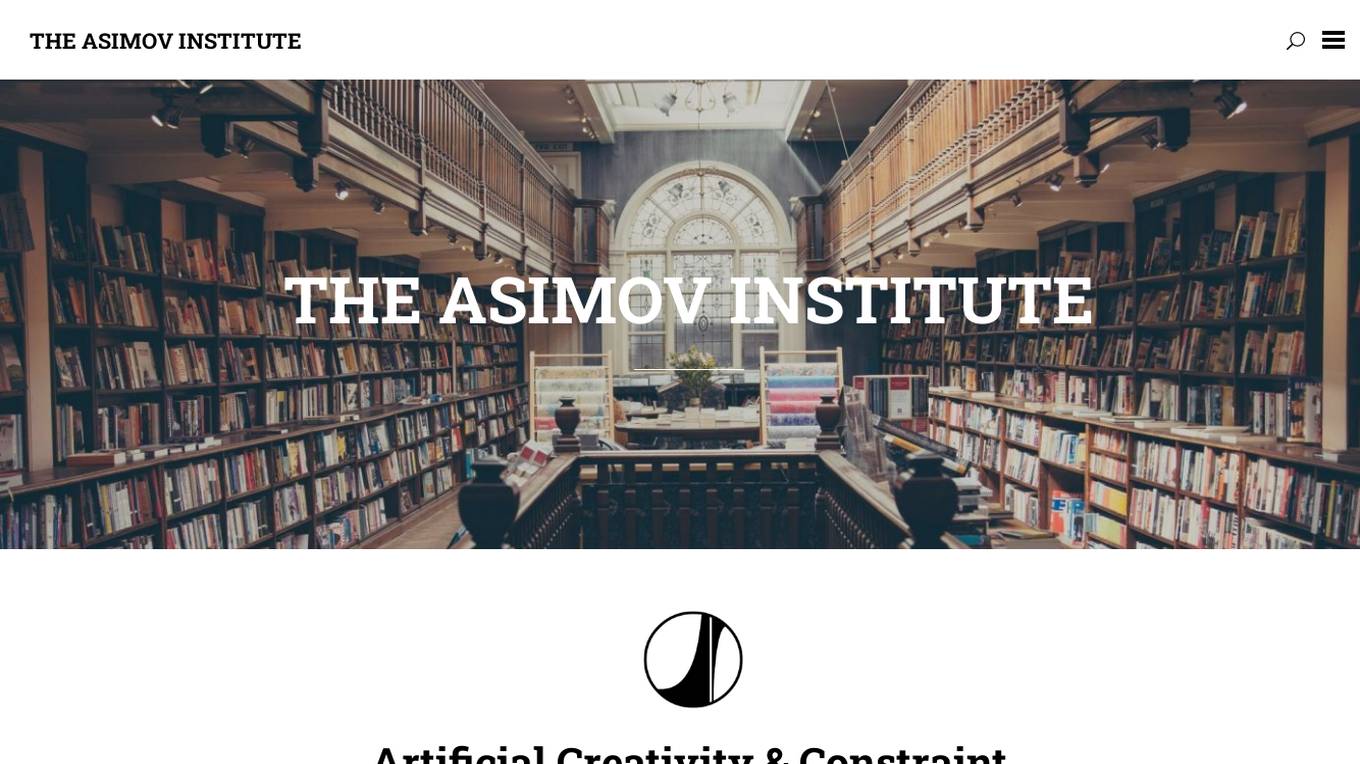
The Asimov Institute
The Asimov Institute is a non-profit AI research institute focusing on the relationship between deep learning and creativity. They publish fundamental breakthroughs in neural network research, provide insights on the societal and business impact of data and AI, and develop tools for creative professionals in various industries. Their neural networks generate new products, content, suggestions, styles, and ideas, catering to architects, graphic designers, fashion couturiers, marketeers, and music producers.
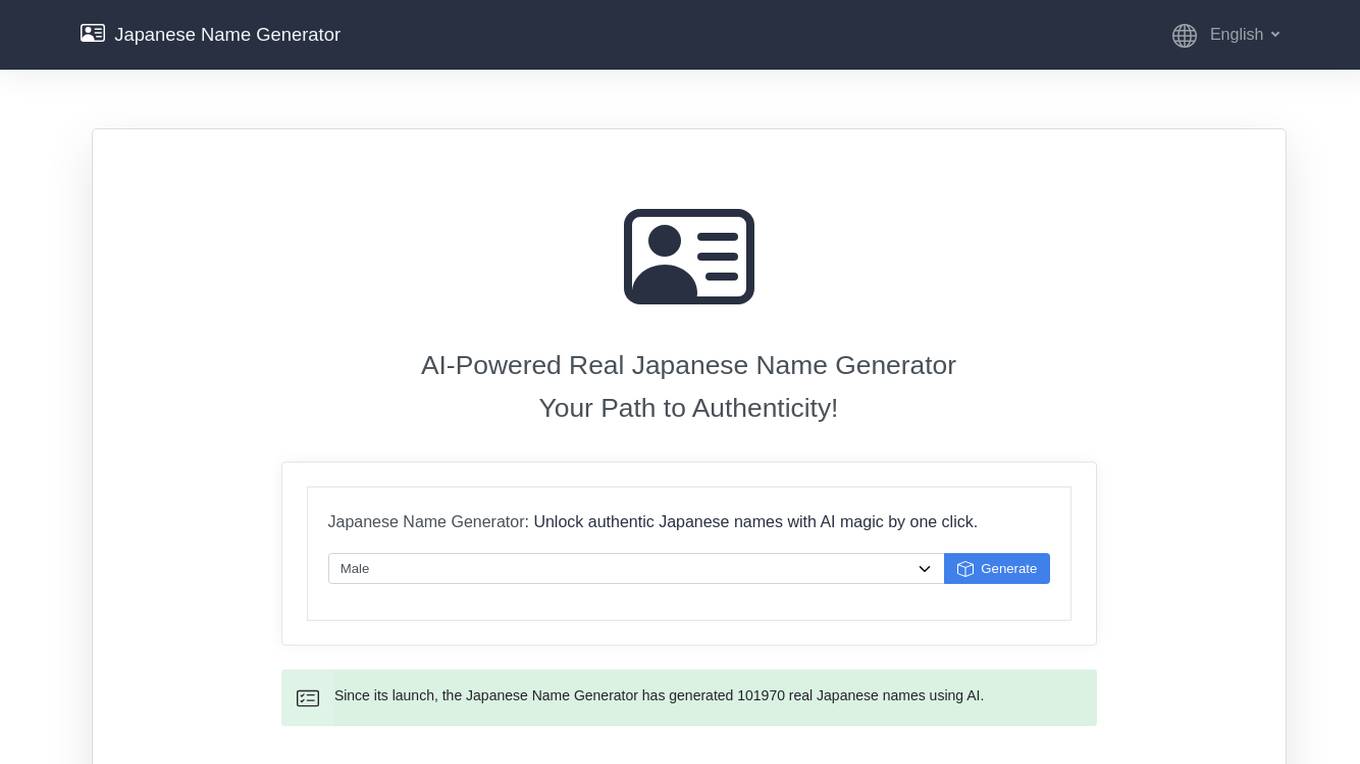
Japanese Name Generator
The Japanese Name Generator is an AI-powered tool that generates authentic Japanese names with cultural significance. It utilizes AI technology to create names that reflect Japanese naming conventions and societal values. The tool aims to provide users with a seamless experience in exploring and appreciating the depth of Japanese naming traditions, making it easier for people worldwide to engage with this aspect of Japanese culture.
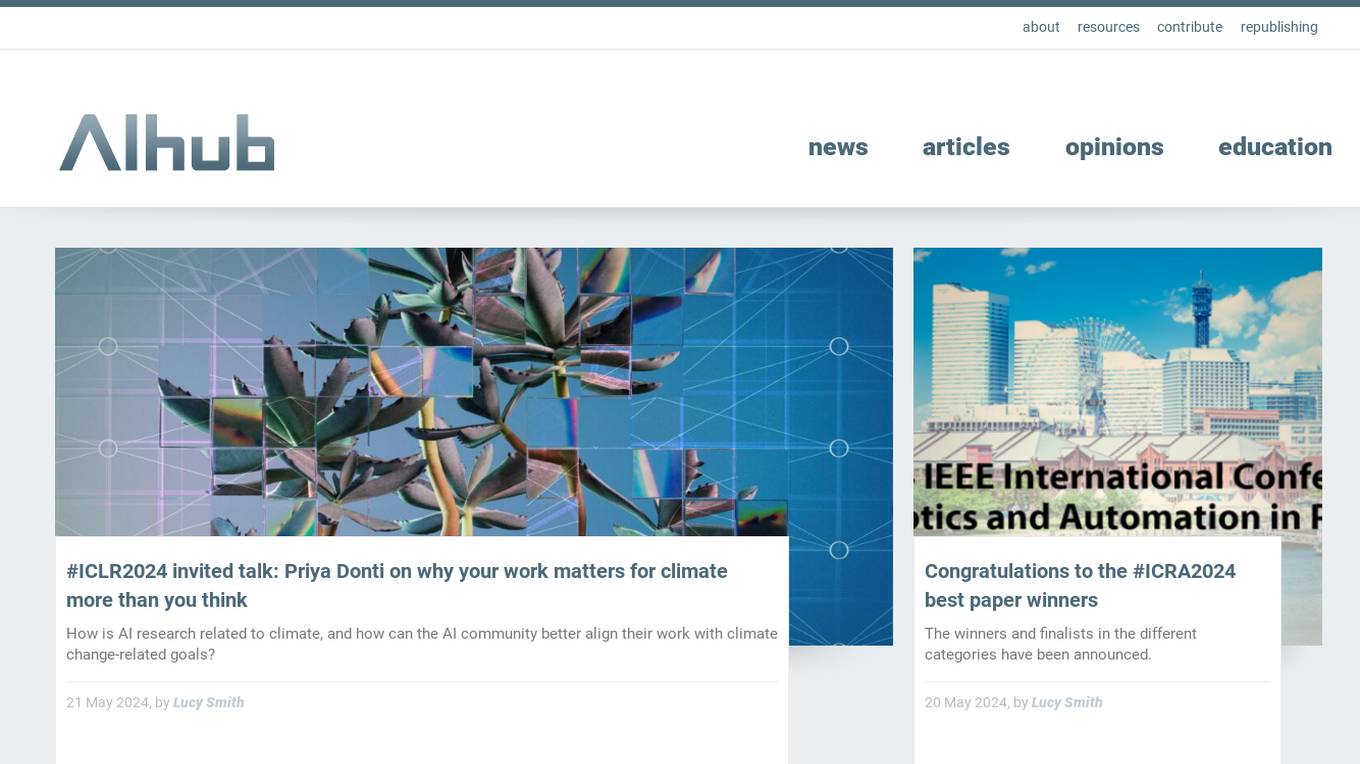
AIhub
AIhub is a platform that connects the AI community and the world by providing news articles, opinions, and education related to artificial intelligence. It serves as a hub for sharing information, resources, and contributing to the advancement of AI technologies. The platform covers a wide range of topics such as AI research, machine learning, robotics, and the societal impact of AI.
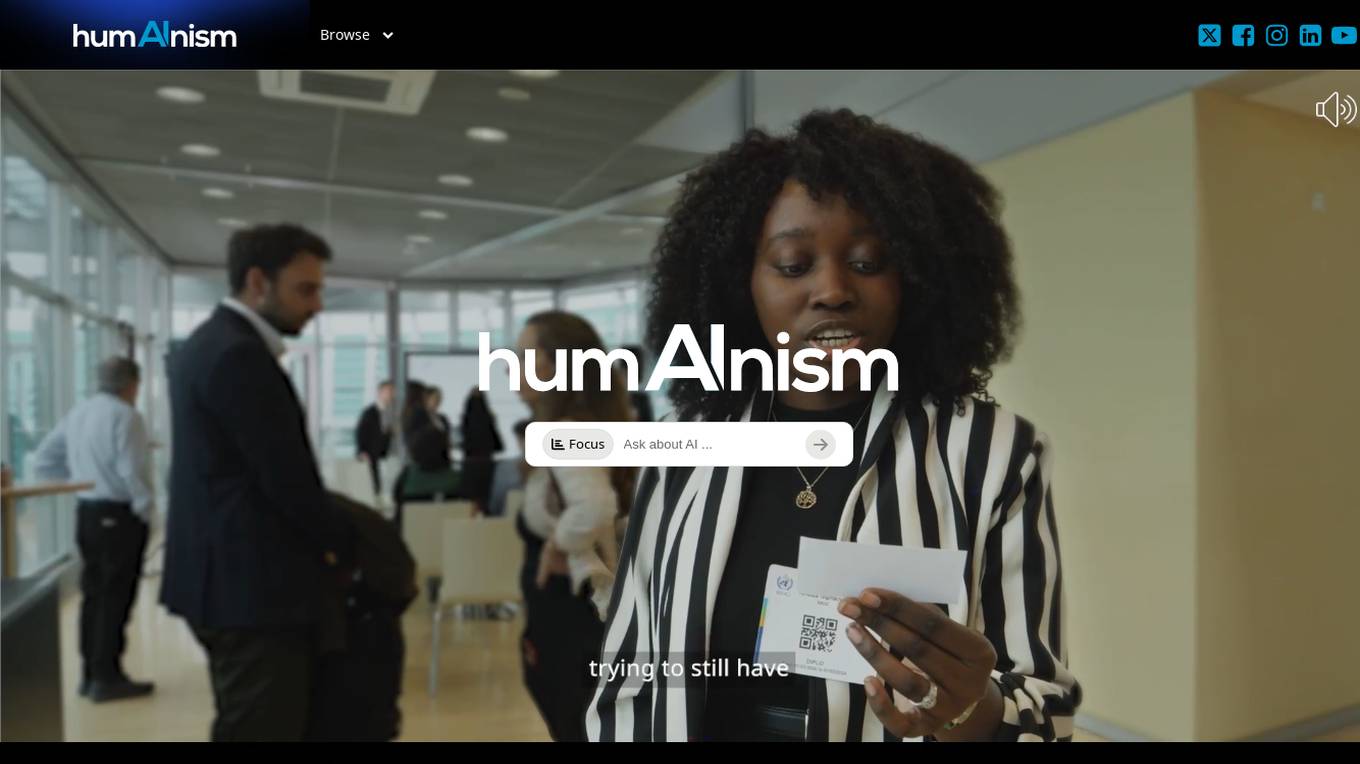
HumAInism
HumAInism is an AI application that focuses on AI governance, diplomacy, human studies, and the intersection of technology and humanity. It offers tools for explainability, transparency, standards, semantics, probability, aesthetics, and more. The platform aims to explore the ethical, societal, and philosophical implications of AI while providing practical solutions for governance and diplomacy.

Infinite Adversaries
Infinite Adversaries is a website that focuses on the concept of infinite adversaries. The platform provides information and resources related to dealing with challenges and opponents that seem endless. Users can find articles, tips, and strategies to overcome obstacles and achieve success in various aspects of life. Whether facing personal struggles, professional competition, or societal issues, Infinite Adversaries aims to empower individuals with the knowledge and tools to navigate difficult situations and emerge victorious.
0 - Open Source Tools
8 - OpenAI Gpts
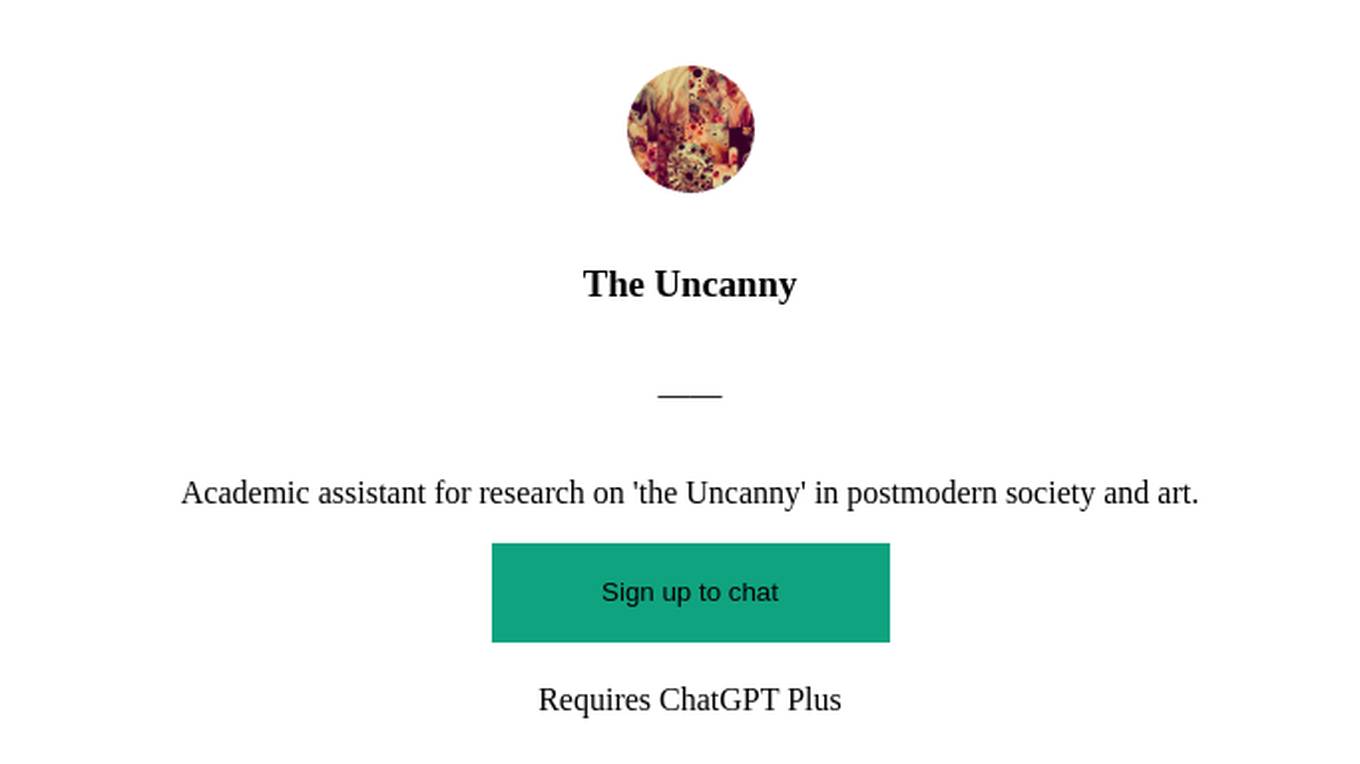
The Uncanny
Academic assistant for research on 'the Uncanny' in postmodern society and art.
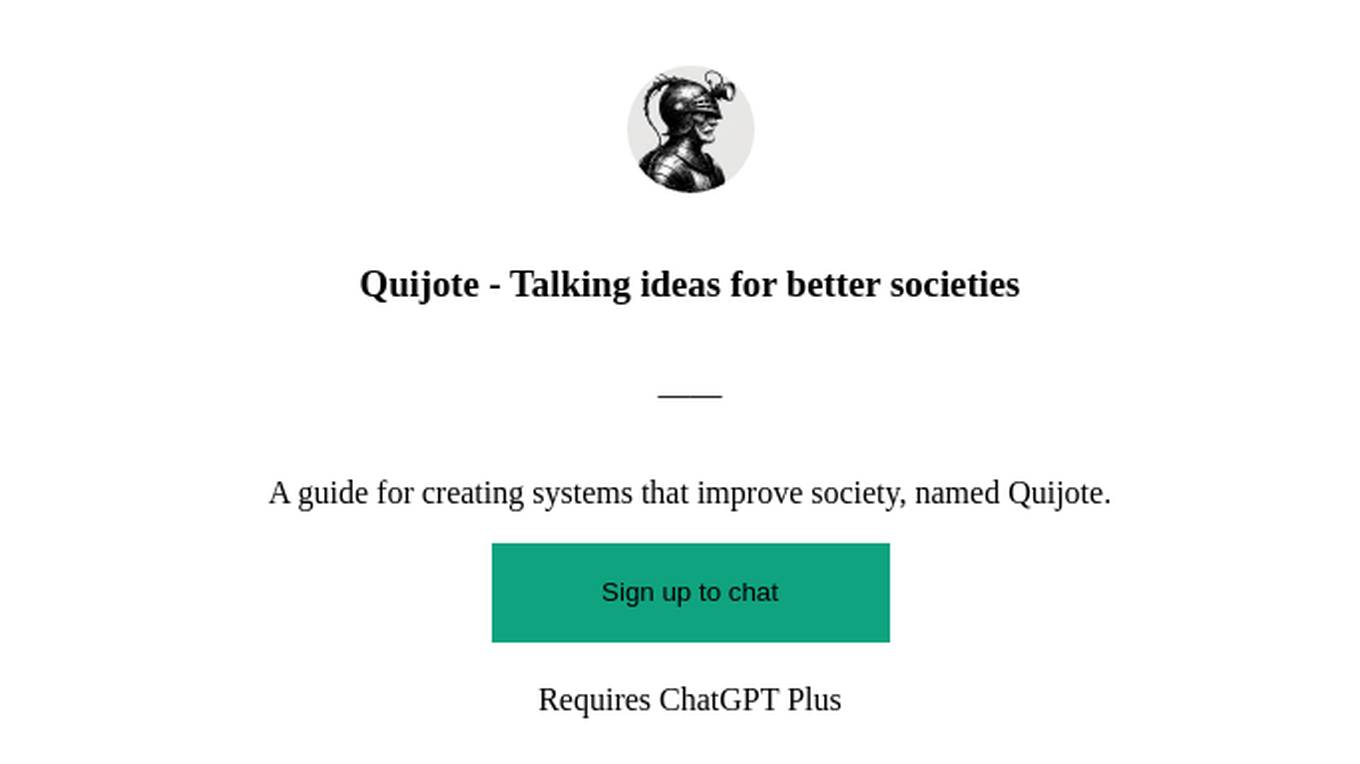
Quijote - Talking ideas for better societies
A guide for creating systems that improve society, named Quijote.
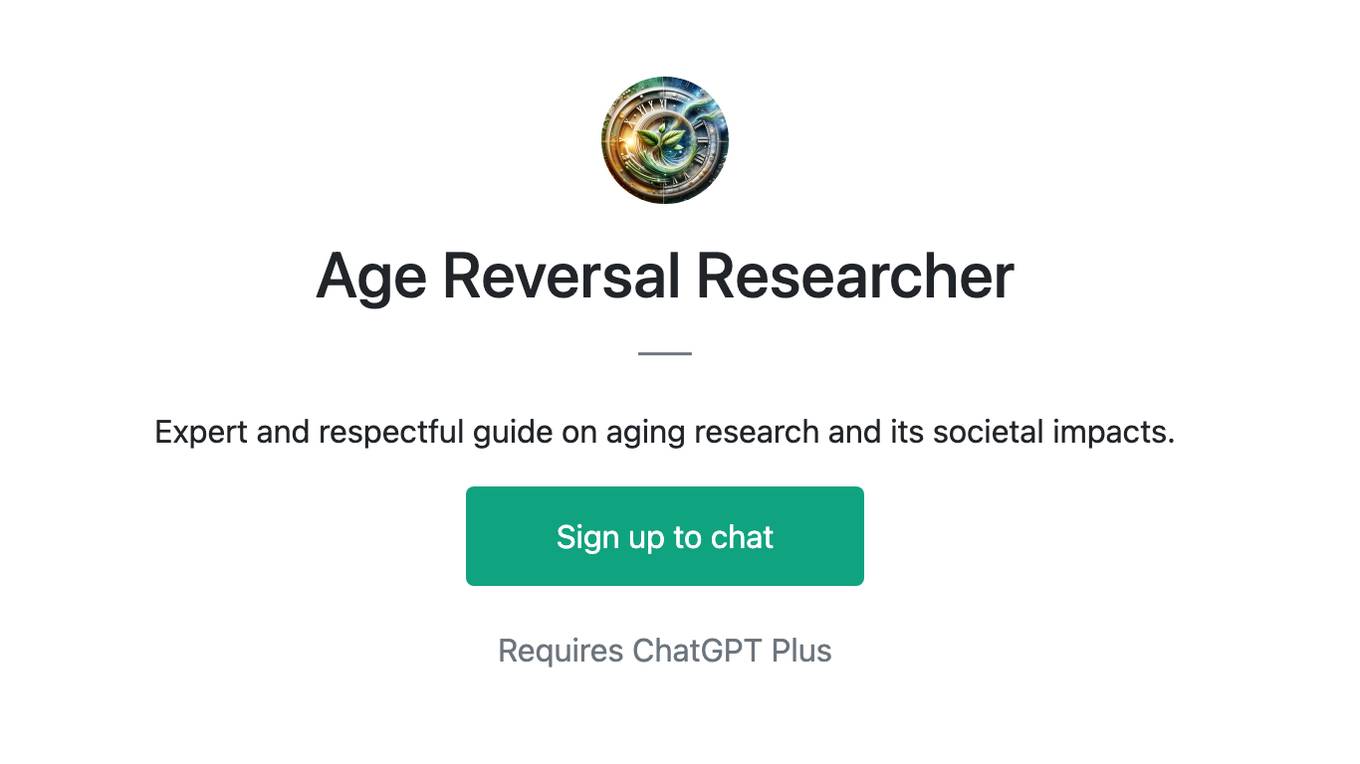
Age Reversal Researcher
Expert and respectful guide on aging research and its societal impacts.
